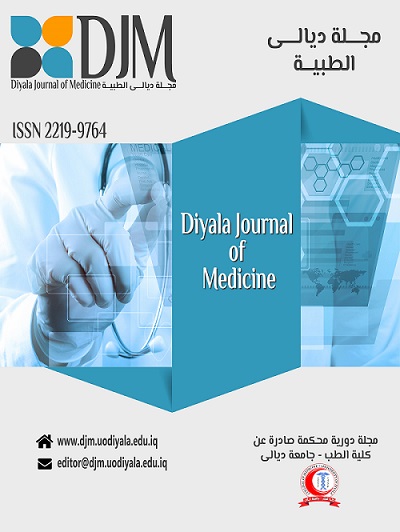Abstract
Background: Prostate cancer is one of the major medical problems in male population.
Chronic inflammation has an important role in many human cancers and could be involved
in the etiology of prostate cancer. Toll-like receptors are important tolls in innate immunity
to pathogens. Many environmental factors could predispose for this cancer, however,
genetic background of the population cannot be neglected.
Objective: To explore the hypothesis that genetic variation in TLR4 gene can influence the
individual's susceptibility to prostate cancer.
Patients and Methods: A total of 95 outpatient men with histologically-proven prostate
cancer as well as 45 apparently healthy men were recruited for this study. Blood samples
were taken from each participant from which genomic DNA was extracted and TLR4 gene
was PCR-amplified, using specific primers. PCR products were genotyped by direct
sequencing.
Results: Asp299gly and Thr399Ile SNPs had only two genotypes; the distributions of these
genotypes were statistically not significant between prostate cancer patients and controls. At
allele levels, the control group had significantly higher frequency in the mutant allele of
Thr399Ile SNP (allele T) than prostate cancer patients. On the other hand, the rs11536889
had three genotypes with the mutant homozygous genotype (CC) and the mutant allele were
more prevalent in PCa than controls with significant difference (OR=3.433, 95%CI=1.107-
10.645, P= 0.033 and OR=2.730, 95%CI= 1.095-6.803, P=0.031 respectively).
Conclusion: Allele T of Thr399Ile SNP may have a protective role, while allele C of
rs11536889 SNP might increase the risk of prostate canc
Chronic inflammation has an important role in many human cancers and could be involved
in the etiology of prostate cancer. Toll-like receptors are important tolls in innate immunity
to pathogens. Many environmental factors could predispose for this cancer, however,
genetic background of the population cannot be neglected.
Objective: To explore the hypothesis that genetic variation in TLR4 gene can influence the
individual's susceptibility to prostate cancer.
Patients and Methods: A total of 95 outpatient men with histologically-proven prostate
cancer as well as 45 apparently healthy men were recruited for this study. Blood samples
were taken from each participant from which genomic DNA was extracted and TLR4 gene
was PCR-amplified, using specific primers. PCR products were genotyped by direct
sequencing.
Results: Asp299gly and Thr399Ile SNPs had only two genotypes; the distributions of these
genotypes were statistically not significant between prostate cancer patients and controls. At
allele levels, the control group had significantly higher frequency in the mutant allele of
Thr399Ile SNP (allele T) than prostate cancer patients. On the other hand, the rs11536889
had three genotypes with the mutant homozygous genotype (CC) and the mutant allele were
more prevalent in PCa than controls with significant difference (OR=3.433, 95%CI=1.107-
10.645, P= 0.033 and OR=2.730, 95%CI= 1.095-6.803, P=0.031 respectively).
Conclusion: Allele T of Thr399Ile SNP may have a protective role, while allele C of
rs11536889 SNP might increase the risk of prostate canc
Keywords
prostate cancer
Genetic variation
TLR4 gene
Keywords
سرطان البروستاتا، التباين الوراثي، جين TLR4،
